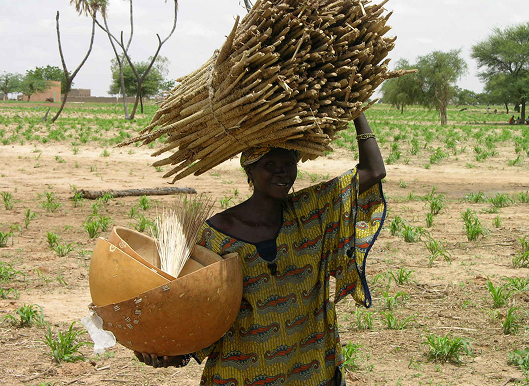Submitter: ICRISAT
ICRISAT, to tackle micronutrient malnutrition (hidden hunger), which affects approximately 2 billion people worldwide, has developed a biofortified open-pollinated pearl millet variety, Dhanashakti, and released it in India in 2013. ICRISAT has developed a series biofortified A and B lines for hybrid production. Using these biofortified inbred lines, ICRISAT’s biofortified millet hybrids, LCICMH 2, LCICMH 3, LCICMH 4, and LCICMH 5, which contain high levels of grain iron (Fe) and zinc (Zn), were released in Nigeria in 2025. Over the last decade, the increased consumption of biofortified pearl millet has helped reduce micronutrient malnutrition in several Indian states including Rajasthan and Maharashtra, where pearl millet is a staple food crop. Mainstreaming nutritional traits in breeding is now being practiced, as cost-effective screening protocols for micronutrient estimations are being developed.

These are successfully grown in rainfed ecologies in the Indian states of Maharashtra, Rajasthan, Haryana, and Gujarat, with annual rainfall ranging from 300 to 700 mm, The biofortified pearl millet variety and the hybrids could be grown in similar agroecologies in West and Central African countries, as well as ESA countries, including Kenya, Zimbabwe, Uganda, and Namibia. Cultivation of the four hybrids could be scaled in Kenya and adjoining countries.
The Dhanashakti seeds are available with Nirmal Seed Company and State Seed Corporations in Maharashtra, Telangana, Karnataka, Haryana, Uttar Pradesh, and Rajasthan. Shakti Vardhak Seed Company is marketing ICMH 1201, a high-iron pearl millet hybrid developed by ICRISAT, under the name Shakti 1201, which has 75 ppm Fe and 40 ppm Zn content in grains. The grain yield of the ICMH 1201 hybrid is 30% higher than that of Dhanashakti, which has the same levels of Fe and Zn. Due to its increased grain yield and high iron content, it quickly spread to more than 35,000 farmers in Maharashtra and Rajasthan staes in India. In WCA, 285 tons of certified Chakti seed were produced in 2023, indicating growing interest in the farming community of the Sahel.
In ESA, several countries, including Kenya, Zimbabwe, Uganda, and Namibia, are prioritizing the release of biofortified pearl millet to address malnutrition in dry areas with limited nutritional opportunities. ICRISAT, in partnership with the NARS, has submitted biofortified pearl millet lines for release in Zimbabwe and Namibia. Meanwhile, biofortified lines are at advanced stages of release in Uganda and Kenya.
According to estimates from feeding trials, these biofortified pearl millet cultivars would meet more than the daily iron requirement of 0.84 mg for men, as well as 70% of the daily requirement of 1.65 mg for non-pregnant, non-lactating women, and 42% of the daily requirement of 2.8 mg for pregnant women. A similar study was conducted among 246 children aged 12–16 years from Maharashtra. Iron biofortified pearl millet meal increased the chances of recovering the required Fe concentration in the body by almost 1.6 times.
The biofortified pearl millet cultivars provide more than 60% higher iron (Fe) than non-biofortified cultivars, potentially benefiting millions of people. Consumers and farmers easily accept a biofortified cultivar with improved mineral content, as it does not require a change in cultivation practices or dietary habits. Reduced moisture availability due to erratic rainfall and growing interest in the adoption of millets, due to their resilience and superior grain nutrition, are the main drivers for scaling their cultivation.
However, adaptive trials are necessary to identify suitable, high-yielding varieties that farmers and consumers prefer, tailored to local conditions. Ready-to-cook or ready-to-eat products will also help scale production.